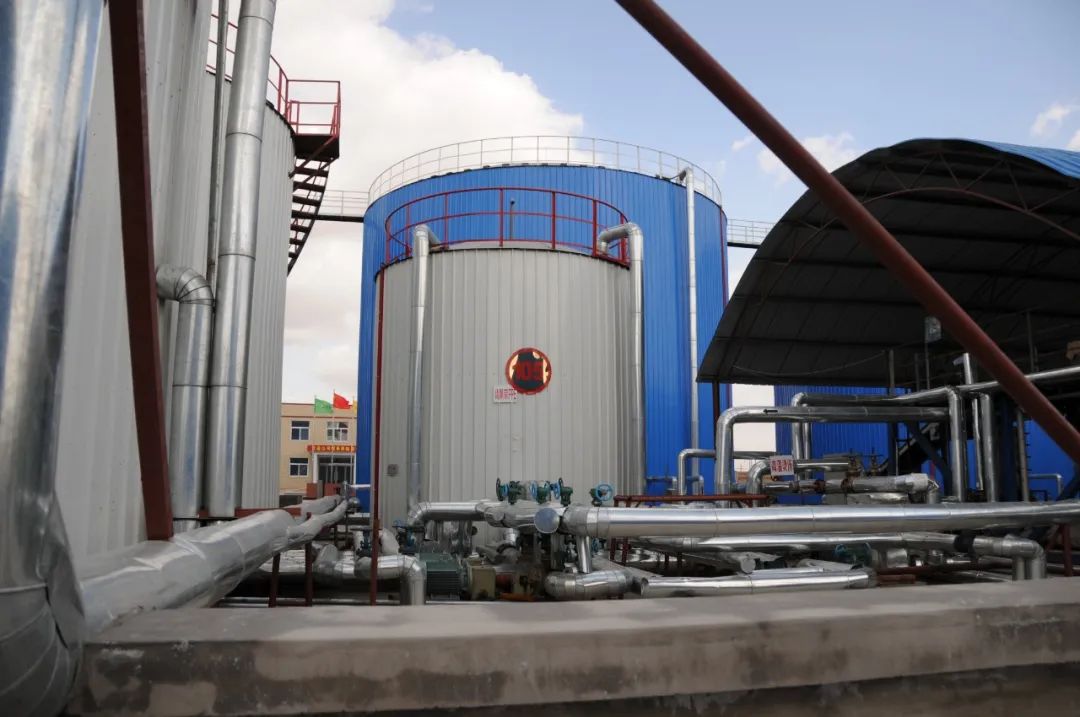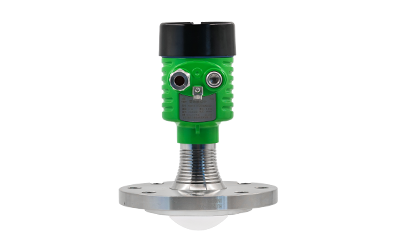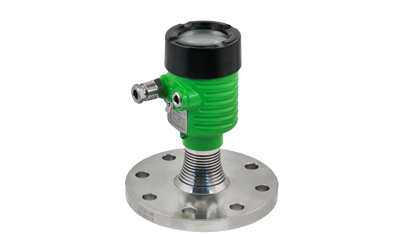When it comes to asphalt, people may think of road paving, and indeed, asphalt plays an important role in road construction. In order to effectively prevent asphalt from being contaminated by foreign impurities and soaked by rainwater, and maintain its quality and stability, it is often stored in storage tanks. However, due to the medium characteristics of asphalt, measuring the liquid level in storage tanks is a challenge. The asphalt enterprises that cooperate with our company mainly engage in road construction work. The company had never been exposed to measuring instruments before, and due to the inconvenient operation and maintenance of the original measurement method, it urgently needed to find a better measurement method. After learning about Yigeqi's non-contact radar level gauge measurement products, it was decided to replace the original asphalt vertical tank measurement method.

The storage tank structure is complex, and the vast majority of asphalt storage tanks are vertical circular tanks made of metal materials, equipped with mixing and heating insulation devices inside, with limited installation locations. And there are the following difficulties:
1. High viscosity: Asphalt has a high viscosity, and conventional liquid level measurement methods are prone to adhesion, which affects the accuracy of measurement and greatly increases maintenance costs in the later stage.
2. Continuous high temperature environment: When storing asphalt, attention should be paid to temperature control. The liquid level measuring instrument not only needs to be able to withstand high temperatures, but also needs to prevent high temperature aging, which will affect the service life of the instrument.
3. Corrosivity: Asphalt contains corrosive chemicals that generally do not corrode metal surfaces at room temperature. However, under specific conditions such as high temperature, humidity, and long-term contact, asphalt can react with certain metals and cause corrosion. So measuring instruments need to be corrosion-resistant.


Traditional asphalt storage tanks often use double flange level transmitters to measure the liquid level. Due to the discontinuous production process, the asphalt is easily solidified after cooling. The measurement of double flange level transmitters is often affected by wall hanging, crystallization, and other issues, resulting in inaccurate measurements. At the same time, the maintenance cost is extremely high, especially during the production process, which cannot be maintained in a timely manner and affects stable production.
Yigeqi's non-contact radar level gauge measurement method does not require direct contact with asphalt media, and is not afraid of special working conditions such as high temperature, corrosion, and adhesion. It can measure liquid levels with high stability and accuracy. The measurement principle is to measure the liquid level height by emitting and receiving microwave signals. The microwave signal reflects upon contact with the asphalt liquid surface, and the device determines the liquid level by measuring the round-trip time of the signal. This non-contact measurement method not only eliminates the problem of crystallization, but also ensures high-precision and long-distance measurement.
The advantage of radar level gauges lies in their ability to adapt to complex working conditions, especially when dealing with viscous media. It provides an efficient and reliable solution for measuring asphalt liquid levels, making the entire process easier and safer.
The non-contact radar level gauge measurement method does not require contact with the medium, and there is no risk of pollution and leakage, enabling asphalt enterprises to achieve green production and reduce environmental impact. Meanwhile, the long-term stable operation of radar level sensors helps enterprises improve equipment utilization and production efficiency, achieving a win-win situation of economic and environmental benefits. Up to now, Yigeqi's non-contact radar level gauge has helped many asphalt industry customers solve the problem of tank level measurement. In the future, Yigeqi will continue to increase research on radar level measurement methods to promote the high-quality development of the asphalt industry.


